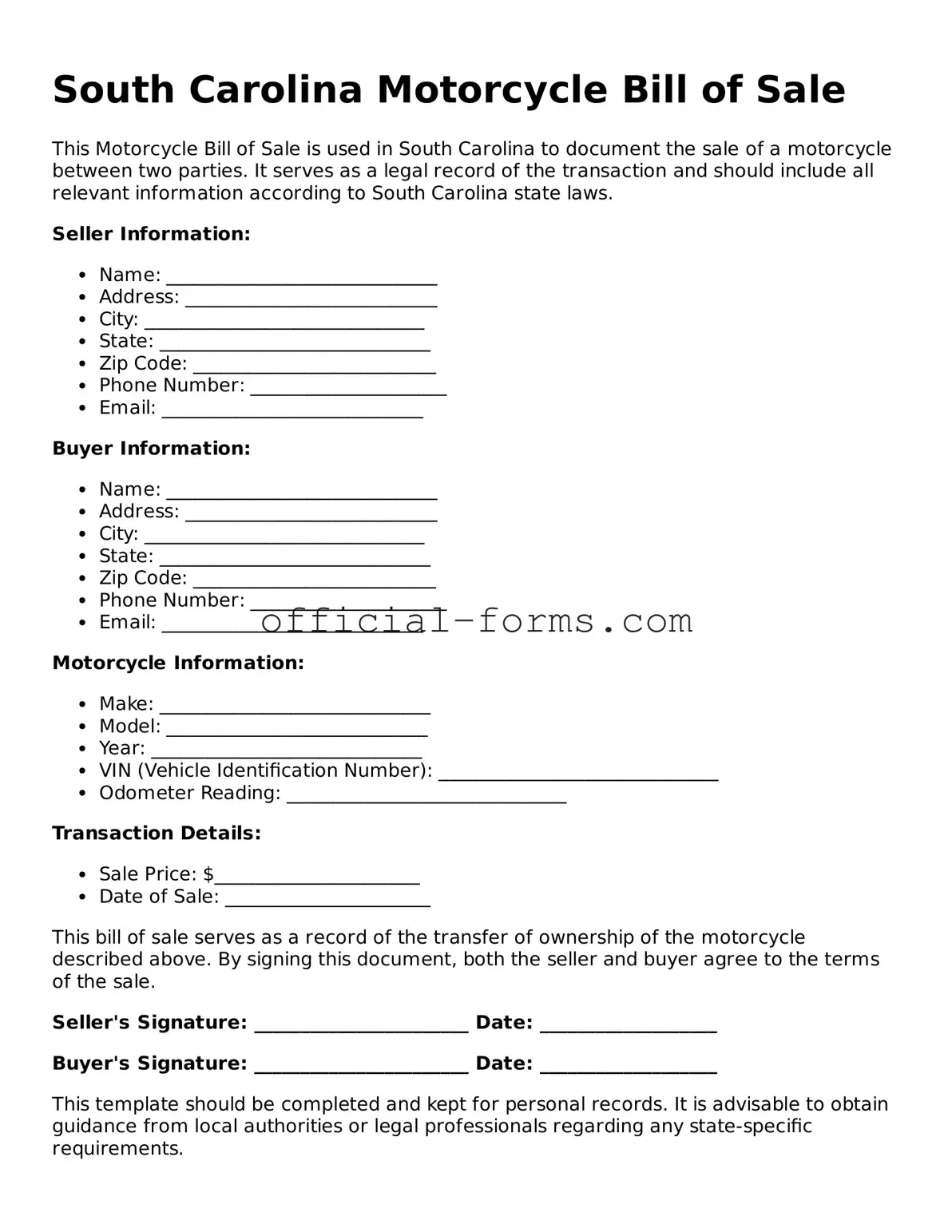Official South Carolina Motorcycle Bill of Sale Document
A South Carolina Motorcycle Bill of Sale form is a legal document that records the sale and transfer of ownership of a motorcycle. This form provides essential details about the transaction, including the buyer, seller, and motorcycle specifications. Having a properly completed bill of sale is crucial for both parties to ensure a smooth transfer and protect their rights.
Open My Motorcycle Bill of Sale Now

Official South Carolina Motorcycle Bill of Sale Document
Open My Motorcycle Bill of Sale Now
Don’t leave your form incomplete
Finish Motorcycle Bill of Sale online quickly from start to download.
Open My Motorcycle Bill of Sale Now
or
➤ PDF
